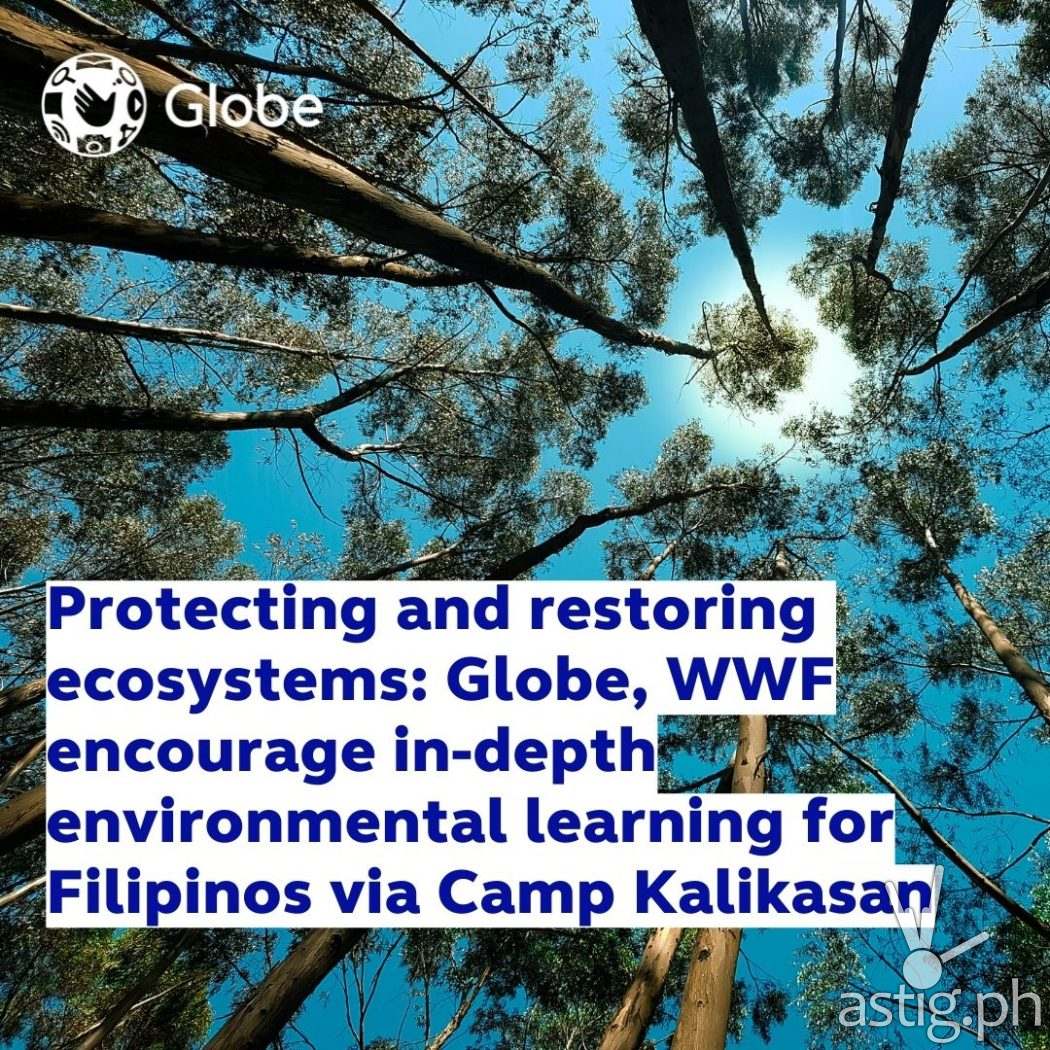MANILA, Philippines – For an archipelagic country like the Philippines, many of our industries and livelihood are dependent on marine resources. In celebration of the Philippine Environment Month, World Wide Fund for Nature Philippines (WWF-Philippines) and Globe are encouraging Filipinos of all ages to be more proactive in learning about how we can help protect and restore ecosystems by signing up for Camp Kalikasan.
Globe and WWF recently hosted a webinar titled “Climate Change in the Classroom: Understanding the Urgency of Climate Education” with guest speakers from the Department of Education (DepEd), the Department of Environment and Natural Resources (DENR), as well as youth environmental advocate Xia Vigor, and WWF-Philippines ambassador Karen Ibasco.
“One of the many things that we want Filipinos to take away from Camp Kalikasan is that our actions can greatly impact the environment – from our daily habits, to the waste we produce, and the carbon emissions we emit. Camp Kalikasan reminds us that we are part of nature. Whatever we do to the environment always has a way back to us,” said Apple Evangelista, Globe’s Head of Sustainability and Social Responsibility.
Camp Kalikasan is an interactive online resource platform designed for students, teachers, and everyday citizens for a more in-depth take on environmental education. The platform and program is a collaboration between Globe and WWF-Philippines which aims to strengthen environmental stewardship among Filipinos in response to the growing risks of climate change.
As part of its sustainability strategy, Globe aims to empower communities through climate education to drive positive environmental impact. The company partnered with WWF-Philippines to encourage Filipinos to participate in the movement to care for the environment.
“Alongside our partners at Globe, we are very excited to bring Camp Kalikasan to more Filipino users as a one-stop digital resource for all things about the environment. Not only do we see it as a way for them to deepen their appreciation for the ocean, but also for them to develop a better understanding of how they play a part in enabling more sustainable living for Filipinos,” said Dino Calderon, Environmental Education Program Manager of WWF-Philippines.
While there are already plenty of online resources on the environment and the ocean, Camp Kalikasan is unique because it offers a more immersive experience, including animated videos, games, quizzes, tutorials, and other exciting activities that make learning more enjoyable for everyone.
Registered members can access the book entitled “Daloy ng Pag-asa,” which highlights the implications of people’s actions to the environment and society.
Camp Kalikasan also offers different modules that can match one’s level of interest and expertise. The module on biodiversity provides lessons about mangroves, seagrasses, and coral reefs— all of which play a crucial role in maintaining the ocean’s health.
Aside from biodiversity conservation, Camp Kalikasan teaches energy conservation and climate change. Upcoming modules include lessons that focus on sustainable lifestyle (i.e. waste management and water management), sustainable production, and sustainable consumption. It makes environmental education in the country more accessible to everyone while strengthening WWF-Philippines’ and Globe’s support for Republic Act 9512 or the Environmental Awareness and Education Act of 2008.
The program is also part of Globe’s commitment to the United Nations Sustainable Development Goals, particularly UN SDG No. 13, which underscores climate action’s importance in saving lives and livelihood to address climate emergencies, and UN SDG No. 14, which emphasizes Life Below Water.
To learn more about the ocean and help preserve it, join Camp Kalikasan today! Visit its website at https://www.campkalikasan.com/ to learn more about the different modules it offers.
Those interested may also watch the full webinar here: https://fb.watch/dGdPngHZat/
For more information about Globe, visit www.globe.com.ph.

